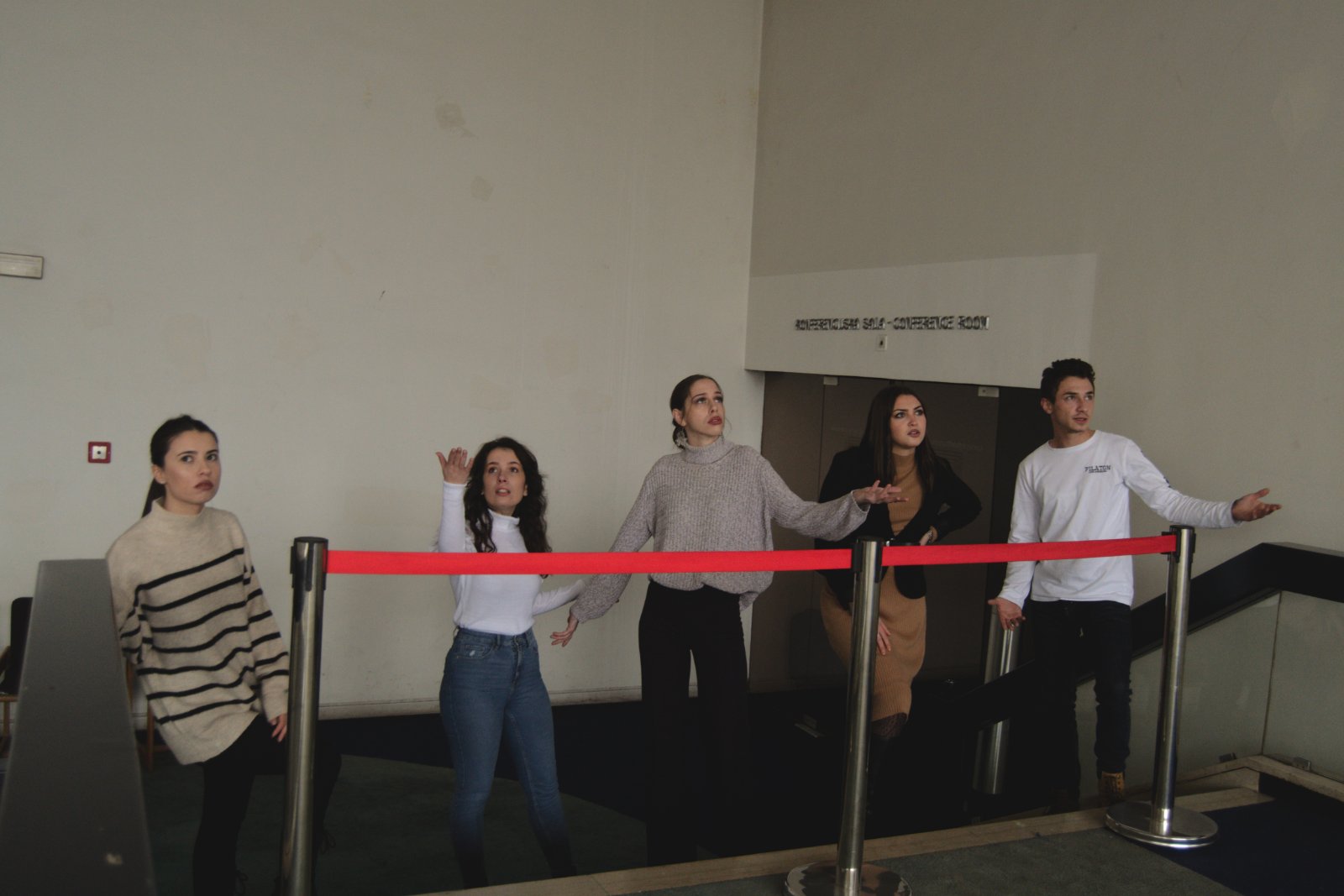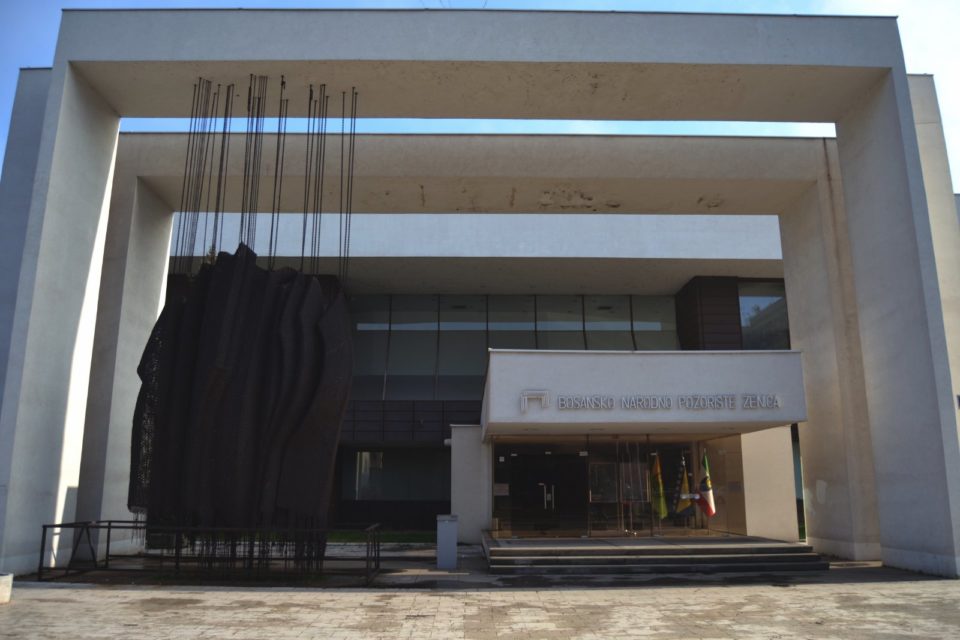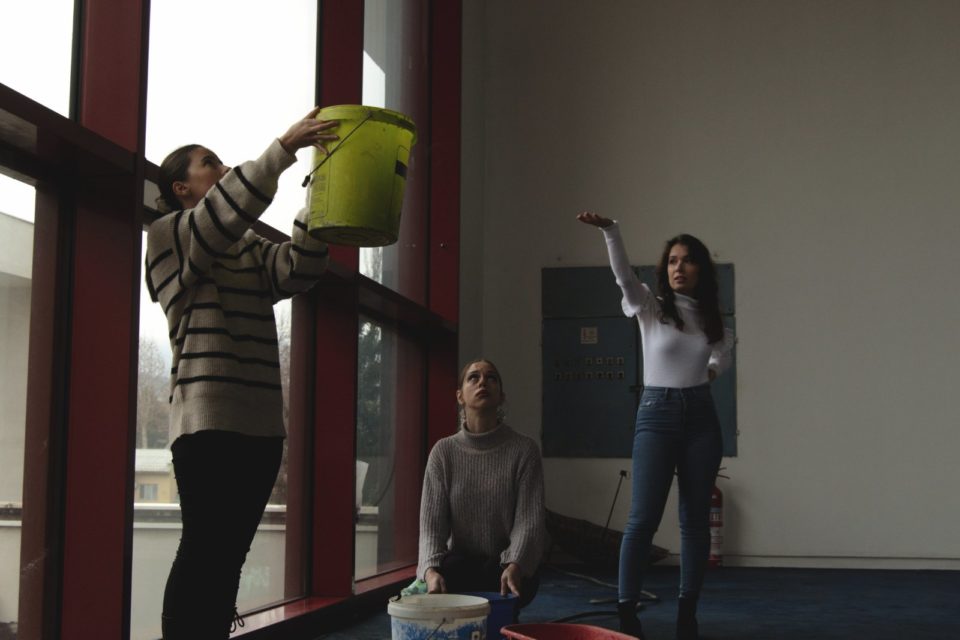
The Bosnian National Theater (BNP) in Zenica represents a unique architectural marvel of the former Yugoslavia. Beyond its role as a cultural institution, it has not only contributed to arts and culture but has also played an educational role in the lives of children and youth for over 73 years.
The expertise of its architects, Jahiel Finci and Zlatko Ugljen, gave rise to one of the finest examples of theater architecture in the former Yugoslavia – BNP Zenica. Finci was a regular professor at the University of Sarajevo Architecture Faculty and a member of the Academy of Sciences and Arts of Bosnia and Herzegovina (BiH), while Ugljen was a fellow member of this Academy, as well as a member of the Croatian Academy of Sciences and Arts and the Slovenian Academy of Sciences and Arts. Their architectural creations are an indispensable part of Bosnian-Herzegovinian cities, embodying a synthesis of place, the spirit of the times, and exceptional creative prowess.
The BNP Zenica building received the prestigious annual award from the Yugoslav newspaper Borba for the greatest architectural achievement in BiH in 1979. Later, it was also awarded the annual distinction of finest architectural achievement in the Socialist Federal Republic of Yugoslavia, thereby crowning the work of the two architects, Finci and Ugljen.

Elvir Škiljo, the chief of marketing at BNP Zenica, explained that they relocated to the new building on May 7th, 1978. The first play performed at this venue was “Na Drini ćuprija” [“The Bridge on the Drina”]. A year after its founding in 1950, BNP Zenica established the Children’s, Youth, and Puppet Scene (DOLS) as an operational department of the theater, responsible for producing high-quality performances for young audiences.
“Children and youth are still being educated there today, often to become future actors and actresses, and getting acquainted with this form of art,” said Škiljo, noting that DOLS enrolls 50-100 students annually, from various age groups, ranging from six to 17 years old.
He emphasized that through DOLS, they are also cultivating future theater-going audiences.
“With the children, we stage professional performances. We have plays for children in which professional actors perform, but every year we have at least one play where children perfrom for children. This year, we staged just such a play called ‘Free the Artists,’ and that play has opened doors for us to reach a generation that rarely visits the theater,” said Škiljo.
Partnerships with Schools and the University in Zenica
In an effort to attract more young people to the theater, BNP Zenica has developed a marketing strategy, which includes high school visits, where actors engage in discussions with young people about their interests. They have also established strong partnerships with local primary schools, as well as with schools located as many as 50-kilometers outside Zenica.
“We have plays for children up to the sixth grade of primary school. Thanks to these partnerships, children are coming to the theater,” said Škiljo, adding that they have also collaborated with the University of Zenica.
Concerning the socialist era, he reflected that people had the false impression that tickets for cultural, sports, and other events were given away for free. However, the contracts that the Zenica BNP had with the former companies reveal that culture was valued then even more than it is today, with attendance arranged through labor unions, which purchased tickets for their members. “The tickets weren’t actually free,” Škiljo explained, adding that annual passes were cheaper because schools arranged plays for specific age groups.
According to Škiljo, this specific marketing approach, by which companies purchased annual tickets for their employees, disappeared with the advent of the current system. Labor unions no longer have the same influence, and there is no state policy in place to promote culture in this manner.
“The theater audience that experienced the transition from the socialist to capitalist system has completely changed. The Zenica theater adapted very quickly to the new market conditions, but what’s hindering our results in this regard are financial resources. For all these years, local and state authorities have not been participating in supporting culture in that way,” said Škiljo.
Fluctuating Attendance
He believes that they have achieved commendable results, considering the annual number of theatrical performances and other events, such as acoustic concerts. The number of attendees varies depending on the play and the season.

BNP Zenica employs 68 staff members, with an acting ensemble of 20-25 actors, while the rest are engaged in various administrative roles. The acting ensemble includes actors with degrees from academies of performing and dramatic arts in Sarajevo, Tuzla, Banja Luka, and Mostar. It’s rare for actors from other cities to become part of the permanent ensemble, primarily due to the challenges of finding accommodation.
“As for the preparation of plays in general, once the script is selected, a director is chosen to work on the production. The director is responsible for assembling their creative team, starting with the actors, set designers, costume designers, and potentially the music director. Rehearsals typically begin with table readings for about five to six days, then move onto the stage, incorporating all the elements. The preparation of a play usually takes between 45 to 60 days,” explained Škiljo.
In addition to its regular play productions and performances, BNP Zenica also organizes the Bosnian-Herzegovinian Drama Festival and the National Drama Festival, as well as hosts the International Festival of Educational Theater (IFET) for children and youth. IFET originated from a dramatical showcase performed by primary and secondary school students and individuals with developmental disabilities. This year marks the 22nd Bosnian-Herzegovinian Drama Festival and the 7th IFET.
BNP Zenica also organizes of the Night of Theater for Bosnia and Herzegovina event and is a partner of the 26th International “Zenica Spring”] event, participating in the performance of plays as well as providing space and overseeing much of the event’s execution.
For years, BNP Zenica has been struggling with the challenge of repairing the theater’s roof, primarily due to a lack of financial resources to complete the project. Škiljo mentioned that through advocacy and media outreach, they have managed to secure funding from the City of Zenica for roof repair, and the tendering process is currently underway.






